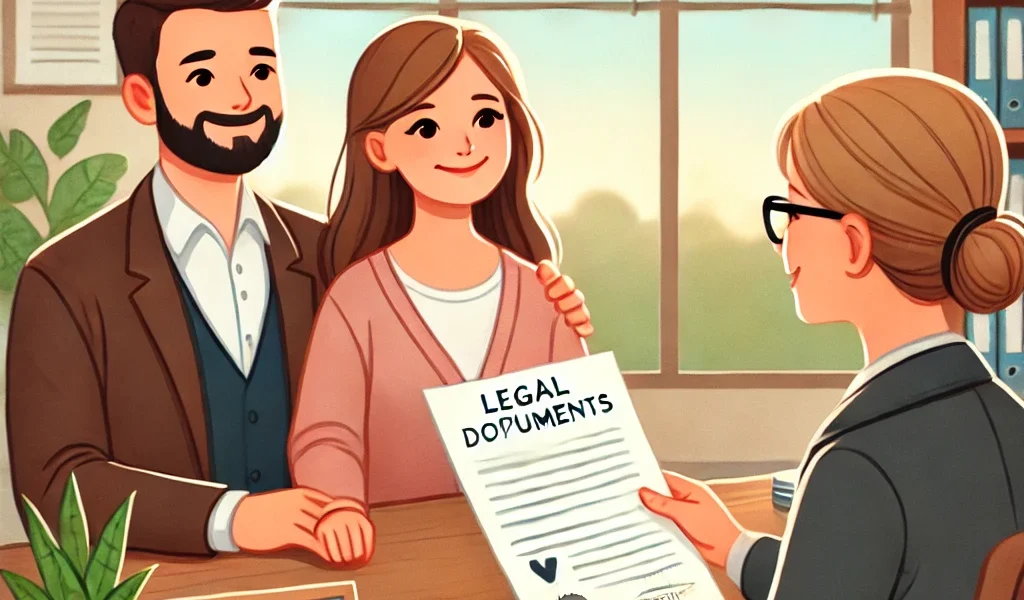Introduction
Adoption is a beautiful way to expand your family while providing a child with a loving and supportive home. However, the adoption process involves several legal steps, financial considerations, and requirements that prospective parents must fulfill. Understanding the legal framework can help ensure a smooth and successful adoption while complying with all necessary laws.
This guide will walk you through the legal steps to adopt a child, the costs involved, eligibility criteria, and key requirements to help you navigate the process with confidence.
Disclaimer: This article is for informational purposes only and does not constitute legal advice. Consult with an adoption attorney or agency for personalized guidance.
Types of Adoption
Before diving into the legal steps, it’s essential to understand the different types of adoption available:
- Domestic Adoption: Adopting a child within your country.
- International Adoption: Adopting a child from another country.
- Foster Care Adoption: Adopting a child from the foster care system.
- Stepparent Adoption: A stepparent legally adopting their spouse’s child.
- Relative (Kinship) Adoption: Adoption by a close family member, such as a grandparent or aunt.
Each type has unique legal processes and requirements that must be met.
Legal Steps to Adopt a Child
Step 1: Choose the Right Type of Adoption
Decide which adoption route is best for you based on factors such as your ability to meet eligibility requirements, financial resources, and personal preferences.
- If adopting domestically, you may go through a private agency or an independent adoption.
- If adopting internationally, you must comply with both domestic and foreign adoption laws.
- If adopting from foster care, the process is often facilitated by the state child welfare system.
Step 2: Meet Eligibility Requirements
Eligibility criteria vary by jurisdiction, but common requirements include:
- Age Requirement: Most states require adoptive parents to be at least 21 years old.
- Marital Status: Some adoption agencies have preferences for married couples, but single individuals can also adopt.
- Financial Stability: Proof that you can provide a safe and stable home.
- Criminal Background Check: A clean record, with no history of child abuse or violent crimes.
- Health Screening: Some agencies require medical evaluations to ensure you can care for a child.
Step 3: Select an Adoption Agency or Attorney
Depending on the type of adoption, you may work with:
- A licensed adoption agency (private or public)
- An adoption attorney for independent adoptions
- A foster care system representative
Research and select a reputable organization to guide you through the process legally and ethically.
Step 4: Complete a Home Study
A home study is a legal requirement that evaluates:
- Your living conditions and home environment.
- Your financial and emotional ability to care for a child.
- Background checks and references.
- Interviews with all household members.
This step ensures the child is placed in a safe, stable, and nurturing environment.
Step 5: Find a Child to Adopt
The process of finding a child depends on your chosen adoption route:
- Domestic & Private Agency Adoptions: The agency matches prospective parents with children.
- International Adoptions: Parents must follow regulations set by the child’s home country.
- Foster Care Adoptions: Parents may adopt a child they are fostering or choose from available children.
Step 6: Legal Consent and Termination of Parental Rights
Before an adoption is finalized, the child’s biological parents (if living) must legally terminate their parental rights. This can happen voluntarily or through a court order in cases of abandonment or neglect.
For foster care or international adoptions, this step is often handled by the government agency or court.
Step 7: File an Adoption Petition
An adoption petition is a legal document filed with the court that includes:
- Information about the adoptive parents
- The child’s details
- Proof of eligibility (home study, background checks, financial records)
- Consent documents from biological parents or agencies
A family court will review the petition before scheduling a hearing.
Step 8: Attend the Adoption Hearing
At the hearing, a judge will:
- Review all legal documents
- Ensure the adoption is in the child’s best interest
- Grant final approval for the adoption
Once approved, the court issues an adoption decree, making the adoptive parents the child’s legal guardians.
Step 9: Obtain a New Birth Certificate
After finalization, the adoptive parents can request a new birth certificate listing them as the child’s legal parents. This replaces the original birth certificate but does not erase previous records.
Costs of Adoption
The costs of adoption vary significantly based on the type of adoption chosen:
| Adoption Type | Estimated Cost (USD) |
|---|---|
| Domestic Private Adoption | $20,000 – $50,000 |
| International Adoption | $25,000 – $60,000 |
| Foster Care Adoption | Low-cost to free |
| Stepparent Adoption | $1,500 – $3,500 |
Adoption costs may include:
- Agency fees
- Legal fees (court filings, attorney costs)
- Home study fees
- Travel expenses (for international adoptions)
- Post-adoption support services
Some grants, tax credits, and employer assistance programs can help offset costs.
Post-Adoption Legal Considerations
1. Finalizing Legal Documents
After the adoption decree is issued, parents must update:
- Social Security records
- Health insurance
- Wills and estate planning documents
2. Post-Adoption Counseling & Support
Adopted children and families may benefit from:
- Therapy or counseling services
- Adoptive parent support groups
- Cultural education programs (for international adoptions)
3. Open vs. Closed Adoption Agreements
- Open Adoption: Allows birth parents and adoptive parents to maintain contact.
- Closed Adoption: No contact between birth parents and adoptive family after finalization.
Open adoption agreements may be legally enforceable in some states, but courts prioritize the child’s best interests.
Conclusion
Adoption is a life-changing experience that requires careful legal planning, financial preparedness, and emotional readiness. Understanding the legal steps, costs, and requirements can help prospective parents navigate the process successfully.
If you’re considering adoption, consult an adoption attorney or licensed agency to ensure a smooth and ethical adoption journey. Every child deserves a loving and stable home, and by following the right legal steps, you can provide one.
For more information, visit the National Adoption Center or your local child welfare agency.




